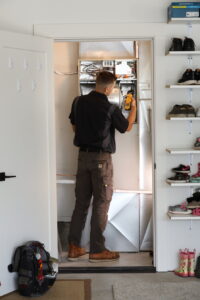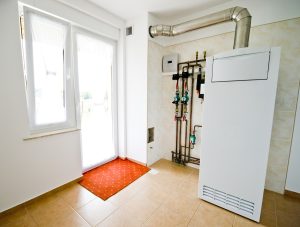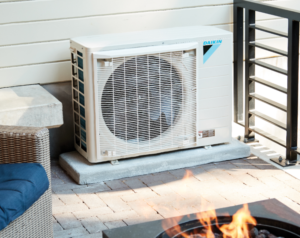Let’s face facts: your air conditioner is on its last leg, and your furnace takes forever to heat up your home.
You know that you need an entire HVAC system replacement, but your home improvement budget keeps you from going through with it.
Or you don’t have cooling in your home, you remember how hot and stuffy it got last summer and into the fall! Plus, your furnace is due for an upgrade.
Whatever the scenario, your current system is likely impacting your day-to-day quality of life, and it’s starting to show. Thankfully, there’s a way that you can save up $4,000 for a full system replacement. If you’re unsure whether your furnace is the problem, take a look at when it’s time to replace your furnace to help guide your decision.
Silver Shield Members can take advantage of qualifying rebates and our preseason AC special to save big and upgrade their current system.
Do I Really Need a Full System Replacement?
Replacing two entire systems is a lot for anyone, so how do you know if it’s really time to pull the trigger and finally replace your home heating and cooling system?
- If you have multiple unit repairs each year.
- If your electric bills are starting to soar.
- If you notice foul smells coming from either your AC or furnace.
- If you hear loud, strange sounds on a constant basis.
- If you don’t have AC and are done with being uncomfortable in the heat!
Let’s be honest: you clicked on this in the first place because deep down, you know that you need to replace your heating and cooling units. If any part of that list jumped out at you, it’s time for a full replacement. Not only will an upgrade improve your comfort, but it will also enhance your home’s energy efficiency. Learn more about why furnace replacement is a good choice when considering a full system upgrade.
Begin Your Replacement Today
This offer extends until April 30th, 2023–now is the perfect time to save.
Plus, with our preseason AC special discounts apply to anything that cools, including air conditioning, ductless, and electric heat pumps, with energy savings you’ll enjoy for years.
Call today, our Home Performance Experts are ready to size the right equipment for your home and budget. And if you aren’t a Silver Shield Member, now is the time to join. Beyond saving up to $4,000 on your full system replacement, you receive comprehensive performance maintenance, WholeHome performance assessments and so much more! If you’re also dealing with an aging water heater, now might be the perfect time to check how old is too old for a water heater and consider upgrading your home’s entire heating and hot water system for maximum efficiency.
Our team of Home Performance Experts has served the I-5 corridor from Blaine to Marysville, Oak Harbor to Concrete, and the San Juan Islands since 1972 with a mission of Improving Lives™. We look forward to serving you too! Contact Barron Heating & Air Conditioning today for a full system replacement.
Continue Reading
Tags: Air Conditioning Replacement, Heating System Replacement
Posted in Air Conditioning, Heating | Comments Off on Replace Your Full System, Both Heating and Cooling: Skip the Line and Save









 There are literally dozens of things you can do to cut back on your heating (and cooling) costs. These range from things like getting a high energy efficiency system to just making sure that you have adequate insulation in all parts of your house. But too many people overlook one of the simplest things that you can do to cut down on your monthly heating bill, and that is to turn the thermostat down.
There are literally dozens of things you can do to cut back on your heating (and cooling) costs. These range from things like getting a high energy efficiency system to just making sure that you have adequate insulation in all parts of your house. But too many people overlook one of the simplest things that you can do to cut down on your monthly heating bill, and that is to turn the thermostat down.